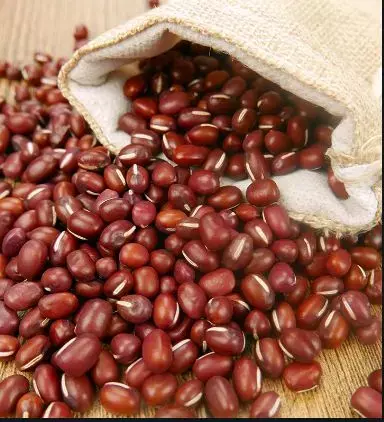- Home
- Medical news & Guidelines
- Anesthesiology
- Cardiology and CTVS
- Critical Care
- Dentistry
- Dermatology
- Diabetes and Endocrinology
- ENT
- Gastroenterology
- Medicine
- Nephrology
- Neurology
- Obstretics-Gynaecology
- Oncology
- Ophthalmology
- Orthopaedics
- Pediatrics-Neonatology
- Psychiatry
- Pulmonology
- Radiology
- Surgery
- Urology
- Laboratory Medicine
- Diet
- Nursing
- Paramedical
- Physiotherapy
- Health news
- Fact Check
- Bone Health Fact Check
- Brain Health Fact Check
- Cancer Related Fact Check
- Child Care Fact Check
- Dental and oral health fact check
- Diabetes and metabolic health fact check
- Diet and Nutrition Fact Check
- Eye and ENT Care Fact Check
- Fitness fact check
- Gut health fact check
- Heart health fact check
- Kidney health fact check
- Medical education fact check
- Men's health fact check
- Respiratory fact check
- Skin and hair care fact check
- Vaccine and Immunization fact check
- Women's health fact check
- AYUSH
- State News
- Andaman and Nicobar Islands
- Andhra Pradesh
- Arunachal Pradesh
- Assam
- Bihar
- Chandigarh
- Chattisgarh
- Dadra and Nagar Haveli
- Daman and Diu
- Delhi
- Goa
- Gujarat
- Haryana
- Himachal Pradesh
- Jammu & Kashmir
- Jharkhand
- Karnataka
- Kerala
- Ladakh
- Lakshadweep
- Madhya Pradesh
- Maharashtra
- Manipur
- Meghalaya
- Mizoram
- Nagaland
- Odisha
- Puducherry
- Punjab
- Rajasthan
- Sikkim
- Tamil Nadu
- Telangana
- Tripura
- Uttar Pradesh
- Uttrakhand
- West Bengal
- Medical Education
- Industry
Beans consumption linked to reduced cardiovascular disease risk, finds study

Red kidney and black beans, the darker-colored beans, elicited a positive effect on the tensile properties of blood vessels, and this acute response may provide insight for how pulses modify vascular function, suggested a recent study.
The findings have been published in Nutrition, Metabolism, and Cardiovascular Diseases.
Cardiovascular disease (CVD) is the leading cause of death worldwide, accounting for nearly one-third of all deaths globally. It is well accepted that a healthy diet has beneficial effects on decreasing the burden of CVD incidence and mortality. Previous dietary trials report that the consumption of vegetable protein, specially colored beans, and peas, instead of animal protein lowers blood cholesterol levels, which may lead to lowering the risk of CVD.
Legume consumption is suggested to have protective effects against cardiovascular disease (CVD) mortality in the general population, but the results have been equivocal. Also, it is unknown whether pulses can modulate postprandial vascular responses.
With this in mind, Jaime L.Clark and associates, at the Department of Food and Human Nutritional Sciences, Faculty of Agricultural and Food Sciences, University of Manitoba, Canada, undertook a study to compare different bean varieties (black, navy, pinto, red kidney) and white rice for their acute postprandial effects on vascular and metabolic responses in healthy individuals.
The study was designed as a randomized cross-over trial with a minimum of 6 days between the consumption of the food particles. Vascular tone (primary endpoint), hemodynamics and serum biochemistry (secondary endpoints) were measured in 8 healthy adults before and at 1, 2, and 6 h after eating ¾ cup of beans or rice.
The results highlighted the following key facts.
- Blood pressure and pulse wave velocity (PWV) were lower at 2 h following red kidney bean and pinto bean consumption compared to rice and navy bean, respectively (p < 0.05).
- There was greater vasorelaxation 6 h following consumption of darker-colored beans, as shown by decreased vascular tone: PWV was lower after consuming black bean compared to pinto bean, augmentation pressure was lower after consuming black bean compared to rice and pinto bean, and wave reflection magnitude was lower after consuming red kidney bean and black bean compared to rice, navy bean, and pinto bean (p < 0.05).
- LDL-cholesterol concentrations were lower 6 h after black bean consumption compared to rice (p < 0.05).
The research team made some important observations as follows.
- Consumption of black or red kidney beans acutely induces vasorelaxation.
- Blood pressure and PWV are decreased by consumption of red kidney or pinto beans.
- Eating darker-colored beans improves the tensile properties of blood vessels.
Thus a significant relation was found between the consumption of dark-colored beans and vascular tensile nature, suggesting that proper dietary modifications can go a long way to reduce CVD risk.
For full article follow the link: https://doi.org/10.1016/j.numecd.2020.07.042
Primary source; Nutrition, Metabolism and Cardiovascular Diseases
Dr Satabdi Saha (BDS, MDS) is a practicing pediatric dentist with a keen interest in new medical researches and updates. She has completed her BDS from North Bengal Dental College ,Darjeeling. Then she went on to secure an ALL INDIA NEET PG rank and completed her MDS from the first dental college in the country – Dr R. Ahmed Dental College and Hospital. She is currently attached to The Marwari Relief Society Hospital as a consultant along with private practice of 2 years. She has published scientific papers in national and international journals. Her strong passion of sharing knowledge with the medical fraternity has motivated her to be a part of Medical Dialogues.
Dr Kamal Kant Kohli-MBBS, DTCD- a chest specialist with more than 30 years of practice and a flair for writing clinical articles, Dr Kamal Kant Kohli joined Medical Dialogues as a Chief Editor of Medical News. Besides writing articles, as an editor, he proofreads and verifies all the medical content published on Medical Dialogues including those coming from journals, studies,medical conferences,guidelines etc. Email: drkohli@medicaldialogues.in. Contact no. 011-43720751


